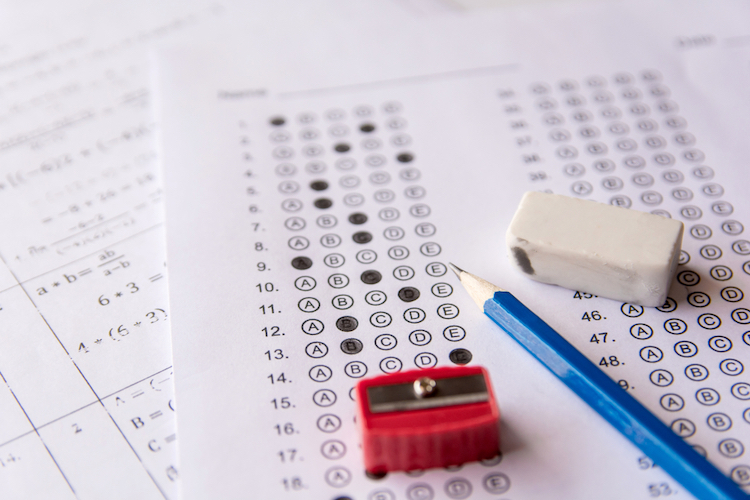Unlocking Academic Excellence: The Power of Quality Sleep

Learning through Travel: Broadening Your Horizons
August 1, 2024
Staying Motivated Throughout the Semester: Find Your Spark
August 20, 2024Unlocking Academic Excellence: The Power of Quality Sleep
Have you recently struggled to concentrate in class or felt disoriented while studying at home? Most students will chalk it off as a lack of caffeinated drinks pumping through their bloodstream or that their work seems too difficult to understand but consider this: the quality of your sleep plays a much greater role than you realize on your academic performance.
For many students, prioritizing sleep over playing video games or hanging out with friends presents a challenge that has become increasingly overlooked in recent years. It is hard to see the indispensable nature of sleep when academic pressures and looming deadlines begin to take hold of your time outside of the classroom. Nonetheless, studies continue to show how important sleep is for improving cognitive functions, elevating academic performance, and prolonging memory.
The Science Behind Sleep and Learning
Sleep is not merely a period of rest; it acts as an essential process that promotes learning and memory consolidation. The brain performs vital tasks while we sleep, including analyzing current information gained during the day, reestablishing lost connections between neurons, and cutting metabolic waste products (from overworking neurons) collected throughout the days prior.
Research collected by sleep scientists has revealed that during sleep, especially in the REM (Rapid Eye Movement) stage, human brains are more active in memory and neural organization than at any other time of day. Yes, that even includes when you are awake! This stage of sleep plays a crucial role in allowing your brain to process procedural memories, and how you act out duties during the day. Another important stage, Deep Sleep, serves as an essential function for your declarative memory, which pertains to facts and knowledge gained from the day before.
The Link Between Sleep and Cognitive Function
Quality sleep directly affects various components of your mental performance that are critical for academic success. Sufficient sleep enhances our brain’s ability to learn and focus on difficult assignments. Sleep also boosts our creativity and problem-solving abilities. Studies have shown that people who get enough sleep are more adept at solving complex tasks than those who are not getting enough sleep. Additionally, sleep plays a vital role in our mood and stress management. Sleep deprivation only increases anxiety leading to detrimental effects both inside and outside the classroom.
The Consequences of Sleep Deprivation
Neglecting the need to get enough sleep can have severe repercussions. Chronic sleep deprivation can lead to issues beyond academic failure, such as obesity, potential heart disease, and most notably mental health problems. The body’s ability to regulate hormones becomes a major setback without sleep, leading to changes in a person’s diet and aptitude to lose weight at night. Every hour short of the 7-hour sleep minimum for our body to function at a standard level only increases the percentage of developing type-2 diabetes.
Inadequate sleep patterns can heighten the chances of having high blood pressure, which in turn increases the risk of contracting heart disease. Mental health drops greatly when the body is deprived of sleep, directly leading to intensified anxiety and in many cases depression. An important realization that many people disregard is the relationship between sleep deprivation and depression; it has become a cycle that intensifies daily, regardless of how minimal each increment may seem.
Practical Tips for Improving Sleep Quality
To improve the quality of your sleep, it is essential to develop a regular and consistent sleep pattern. The best way to keep an internal clock and a consistent sleep schedule is by going to bed and waking up at the same time each day to familiarize your body and brain with when you need to be active or not. Additionally, limiting your exposure to bright screens and blue light to at least one hour before bed can significantly help you fall asleep. Instead, try relaxing activities like reading your favorite book, meditating, or taking a warm bath to ease your mind and body, letting them know that it is time to sleep.
A second method to improve your sleep quality is setting up a sleep-inducive environment. Consider using blackout curtains, a white noise machine, or earplugs, and keeping your room quiet and dark for the best possible conditions. Investing in a comfortable mattress will also promote more comfort when sleeping and can create a significant difference in maintaining quality sleep throughout the night. Finally, be mindful of your diet and exercise routine before bedtime. Refrain from drinking any caffeine or ingesting a big meal right before you sleep and incorporate a balanced exercise schedule into your life during the day to get the most benefits out of sleeping.
Embracing the Power of Rest
The significance of sleep in achieving academic success cannot be overstated. By prioritizing sleep and understanding its impact on cognitive functions, students can enhance their learning capabilities and manage stress to support better overall well-being. Take note that a well-rested mind is a powerful tool to handle your academic pressures and unlock your potential. Make sleep a priority and watch how it improves your academic journey and quality of life.


